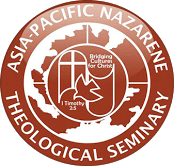- Resource Types
- Resource Languages
- Institutional Repository
 Visit the home page
Visit the home page
About Site Language
WHDL is viewable in multiple languages. Use the pull-down menu to select a language to view the site.
I changed my language, but I’m still seeing resources in the other languages?
If a resource or text has not been translated into your selected language, it will appear in the initially added language. We are always looking for help translating these resources. If you can help, contact us!
WHDL - 00020066


click to copy
Loscos, J (2023). A discipleship series on social religion for the Rizal Philippines Annual Conference East of the United Methodist Church based on selected sermons of John Wesley. .
Loscos, JonathanA discipleship series on social religion for the Rizal Philippines Annual Conference East of the United Methodist Church based on selected sermons of John Wesley. . , 2023
Loscos, JonathanA discipleship series on social religion for the Rizal Philippines Annual Conference East of the United Methodist Church based on selected sermons of John Wesley. . , 2023
Loscos, JonathanA discipleship series on social religion for the Rizal Philippines Annual Conference East of the United Methodist Church based on selected sermons of John Wesley. . , 2023
The Methodist heritage has a rich history of social participation as a form of witnessing its faith to the world. John Wesley’s sermons about Christianity being a social religion contain discussions that can reinforce the vision of social holiness and express the social nature of religion. A discipleship course regarding the social nature of Christianity in light of Wesleyan tradition was created through a selection of John Wesley’s sermons by translating them into contemporary language supplemented with discussion questions. The Taytay United Methodist Church in Rizal, Philippines was the pilot class for studying the material via a combination of online and face-to-face discussions. Expected outputs including a final evaluation were required for participants to receive a Certificate of Completion. Moreover, the thesis writer referred to Hilda Taba’s (1962) work Curriculum Development: Theory and Practice and Bonous-Hammarth et al. (1996), A Social Change Model of Leadership Development for the development of the project thesis. The thesis writer utilized a subject-centered approach in designing a curriculum which relies on teacher-planned instruction. The written material was a combined translation and direct quotation drawn directly from John Wesley’s sermon manuscripts. An initial evaluation of the material was given by Wesleyan experts. Participants were selected through convenience sampling. Data was collected online through Google Forms, comprising a diagnostic instrument and the evaluation form for the overall pilot implementation. There are 20 participants, ages 37 to 84 years, enlisted for pilot implementation and 13 were able to answer the diagnostic instrument. Due to irregular schedules, only10 participants met all requirements for completion, and 14 were able to respond to the Feedback and Evaluation Form. Regarding the Evaluation and Feedback, participants gauge their experience according to four criteria namely, Content, Impact, Interaction, and Integration using a 10-point rating scale, with 1 as the lowest and 10 as the highest. In order of highest to lowest, Impact ranked highest (9.54), followed by Integration (9.36), Content (9.07), and Interaction (9.05). Furthermore, the comments and suggestion that were obtained were grouped according to the emerging classifications identified from the participants’ answers a) The Experience of The Participants, b) The Insights/Learning Gained Through the Lesson Content c) The Instructional Process with an Emphasis on Reflection, and d) The Language of the Material and Further Suggestions. Suggested improvements include lessened use of footnotes for direct quotations, and enhanced transitions in the discussions. Tagalog and Youth-oriented versions were recommended as possible future projects.
50 Resources
This collection contains the theses in fulfillment of the degree of Master of Arts in Religious Education at Asia-Pacific Nazarene Theological Seminary.
2025
1922
1827
1862
1873
1833
1893
1878
1857
n.d.
1909
1893
2024
1857
2022
1885
1884
2025
2025
1902